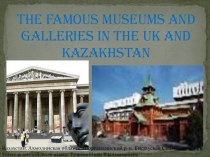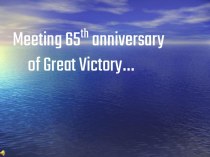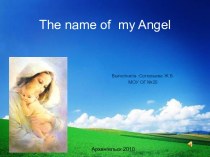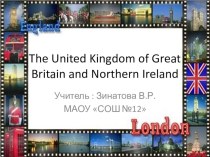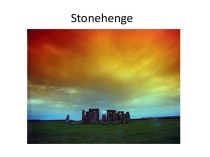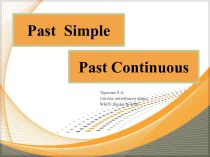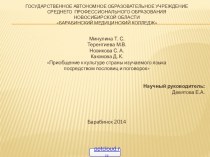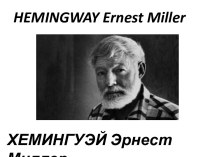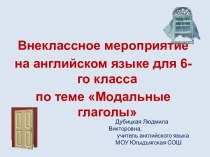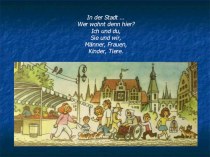- Главная
- Разное
- Бизнес и предпринимательство
- Образование
- Развлечения
- Государство
- Спорт
- Графика
- Культурология
- Еда и кулинария
- Лингвистика
- Религиоведение
- Черчение
- Физкультура
- ИЗО
- Психология
- Социология
- Английский язык
- Астрономия
- Алгебра
- Биология
- География
- Геометрия
- Детские презентации
- Информатика
- История
- Литература
- Маркетинг
- Математика
- Медицина
- Менеджмент
- Музыка
- МХК
- Немецкий язык
- ОБЖ
- Обществознание
- Окружающий мир
- Педагогика
- Русский язык
- Технология
- Физика
- Философия
- Химия
- Шаблоны, картинки для презентаций
- Экология
- Экономика
- Юриспруденция
Что такое findslide.org?
FindSlide.org - это сайт презентаций, докладов, шаблонов в формате PowerPoint.
Обратная связь
Email: Нажмите что бы посмотреть
Презентация на тему по английскому языку на тему Краткая история Великобритании (Brief history of Great Britain)
Содержание
- 2. The British Isles have a rich history
- 3. Long ago, the British Isles were not
- 4. The first civilized people came to Britain
- 5. At the Iron Age tribes of Celts
- 6. They came, they saw, they conquered. It
- 7. They settled in Cardiff and built a
- 8. The Romans were in Britain for
- 9. Romans brought new religion instead a number
- 10. The origin of London as a city also belongs to this time.
- 11. In the middle of the 5th century
- 12. The strength of Anglo-Saxon culture is obvious
- 13. In the the 8th century Vikings occupied
- 14. The Normans conquered Britain in 1066, and
- 15. The Tower of London was founded in
- 16. At the Middle Ages the well-known Westminster Abbey was finished.
- 17. William was the first King to be
- 18. The beginning of the 17th century can
- 19. In 1665 the greatest epidemic of the Bubonic Plague broke out in London.
- 20. A year later after it was the Great Fire.
- 21. Great Britain was formed in 1707, when
- 22. In 1805 was the Battle of Trafalgar. Nelson defeated Napoleon’s invasion armies.
- 23. In 1850 was the Battle of Waterloo. Napoleon defeated.
- 24. The 19th century is the period of
- 25. At those times Britain conquered a lot
- 26. World war I began in 1914. The
- 27. After the world war II great Britain
- 28. Now the United Kingdom consists of four countries: England, Wales, Scotland and Northern Ireland.
- 29. The UK is a constitutional monarchy. In
- 30. The country is ruled by the elected Government with the Prime Minister at the head.
- 31. As you can see Great Britain is
- 32. They are: William Shakespeare, Daniel Defoe, Francis Bacon.
- 33. Pablo Picasso, Isaac Newton, Charles Darwin.
- 34. Everybody knows the icons of Great Britain such as double-deckers, telephone booths, Hadrian’s wall.
- 35. The Rose, the V-sign, the angels of the north.
- 36. Wimbledon, the oak tree and of course English tee.
- 37. Скачать презентацию
- 38. Похожие презентации





































Слайд 3 Long ago, the British Isles were not isles
at all. Britain was the part of the European
continent. About 10,000 years ago the last Ice Age ended and the climate grew warmer. New rivers and seas were formed and Europe was slowly formed into its present shape.
Слайд 4
The first civilized people came to Britain from
northern Europe at the Stone age. Stonehenge is as
the remaining about them. Nobody knows what it was built for till our days.Слайд 5 At the Iron Age tribes of Celts arrived
in Britain. These tribes were represented by the Picts, the
Scots and the Britons. The Britons were the most powerful of all the Celtic tribes and they occupied most of the country. Later it was named Britain after them.At the Iron Age tribes of Celts arrived in Britain. These tribes were represented by the Picts, the Scots and the Britons. The Britons were the most powerful of all the Celtic tribes and they occupied most of the country. Later it was named Britain after them.
Слайд 6 They came, they saw, they conquered. It was
Romans who came to Britain in 55–54 BC under Julius Caesar.
They came, they saw, they conquered. It was Romans who came to Britain in 55–54 BC under Julius Caesar.
Слайд 7 They settled in Cardiff and built a military
fort on the site of Cardiff Castle.
Cardiff became
a city in 1905 and was crowned the capital of Wales in 1955.They settled in Cardiff and built a military fort on the site of Cardiff Castle.
Cardiff became a city in 1905 and was crowned the capital of Wales in 1955.
Слайд 8 The Romans were in Britain for over
350 years. They influenced Britain greatly in the different
spheres of life .Слайд 9 Romans brought new religion instead a number of
Gods. It was Christianity
Romans brought new religion instead
a number of Gods. It was Christianity Слайд 11 In the middle of the 5th century German
tribes - the Angles and the Saxons came to
Britain from the continent.Слайд 12 The strength of Anglo-Saxon culture is obvious even
today. Days of the week are named after German
Gods and possibly they brought the game of chess.Слайд 13 In the the 8th century Vikings occupied some
parts of Britain. The Scandinavian invasions continued till the
11th century.Слайд 14 The Normans conquered Britain in 1066, and imposed
a legal and administrative system much of which still
exists today.Слайд 15 The Tower of London was founded in 1078
and it stands there still unchanged. It was built
for protection the Normans from the people of London and to protect London from outside invaders.The Tower of London was founded in 1078 and it stands there still unchanged. It was built for protection the Normans from the people of London and to protect London from outside invaders.
